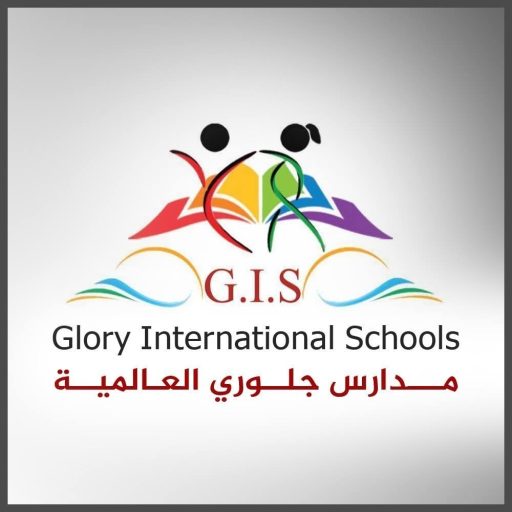Language policy
Language development is one of the basic pillars of a child’s cognitive and personal growth; thus proficiency of the mother tongue is essential for acquiring and developing other languages. Glory International Schools believes that it is crucial for students to develop full understanding of their heritage, civilization and culture while understanding, accepting, connecting and appreciating other languages and cultures. Therefore, a strong and challenging bilingual educational program is offered to all students. Where Arabic Language is the mother tongue and English is taught at an equal level of efficiency. GIS aspires to teach languages through various meaningful methodologies and across the curricula, in order to ensure continuous development of students’ abilities to become inquiring and knowledgeable as
well as being good communicators which will help our students develop social skills and values. Through this bilingual program we at GIS aim to raise internationally minded individuals and globally responsible citizens.
GIS further believes:
• While all languages are equally important, the language of instruction and mother tongue should receive additional support in order to further fulfill each student’s educational and social potential.
• All members of school community have an important role in a student’s language development either through the use of language and/or promotion of language learning
• Mother tongue development (Arabic) is vital in order to maintain culture, heritage, and community links
• The school community should be encouraged to acquire and develop additional language/s
Glory International Schools
Languages at GIS:
Our school delivers an international program to all Palestinian school population. All students must study Arabic regardless of nationality. The language of instruction is English with Arabic taught at all grade levels. It is intended that all students at
GIS will be bilingual in English and Arabic.
At primary level, the emphasis is on continuing acquisition of English language skills and refinement of Arabic. Core (English, Math, Science and ICT) and Foundation subjects are delivered in English with Arabic as the language of instruction for Arabic Language, Social Studies and Islamic Religion (as required by the Ministry).
Arabic use within classes other than in Arabic, Religion and Social Studies (in Primary) is
not, as a rule, permitted unless an Arabic equivalent is needed in order to explain a word.
Teachers will refrain from using Arabic as a pedagogical practice.
As language is the key to all learning, appropriate linguistic strategies will be taught throughout all subjects regardless of language of instruction. Through curriculum and language instruction students will be able to:
• acquire knowledge to help them make sense of their surroundings
• Critically express thoughts with clarity and confidence
• develop communication and critical thinking skills
• Confidently communicate, either orally and/or in writing
• understand the power of language and apply it appropriately
• choose appropriate registers according to audience, situation and need
• find a balance between listening and speaking
• reflect on how they use language
Arabic Language
As the most widely used, Arabic, takes an important role in the lives of our students. For linguistic and cultural reasons, the teaching of standard Arabic is given high value at our school. Arabic development in Primary is being supported directly for students through the teaching of Arabic by specialist teachers with hours allocated according to level and
Ministry requirements.
Glory International Schools
English Language Support
As an English medium school, GlS recognizes that not all students learn at the same pace or have similar learning aptitudes as regards to languages. Accordingly, additional English
support will be provided in a variety of forms for identified students throughout the primary
level including K.G.
3
Glory International Schools
,,,,_ each unit of work and continuously reinforced during the unit and rev ·iew e d postum.t .
Assessment
Teachers regularly use diagnostic, formative and summative assessment, self and peer
assessment to assist in the teaching and learning. Assessment takes place in accordance
with GIS Assessment Policy and policies and practices as outlined by accrediting authorities. Student work is assessed using rubrics and/or pre established criteria/descriptors/objectives according to grade level. Students and parents will be kept informed of student progress through informal parent teacher meetings, scheduled parent teacher consultations, Progress Reports, Student-led Conferences and/or Portfolios. Each or any of these are according to grade level.
Resources
GIS is well provided with resources for languages at all grade and age levels. Resources will be age and grade appropriate with emphasis on developing language skills and providing for extension and/or remediation. The school libraries play a key role and are a central part of the school language program. They are used as an integral part of the curriculum, by students and teachers, and are frequently developed with updating of resource materials. A wide range of literature in the school libraries will extend and supplement classroom resources. The aim is to help students become independent and committed readers, through free interaction with a variety of texts and to develop literacy skills. The school library includes both Arabic and English literary and non- literary texts. Each department will also ensure an adequate number of resources which further supplement subject specific resources eg vocabulary wall charts.
Language Use Around School
GIS is aware of the power of language and words, and acknowledges that what individuals say, and how individuals say things, directly affects people’s perceptions of our intentions, goals and values. Our school therefore encourages all its community members to develop positive means of communication that foster a sense of community. For this reason, our students and teachers should, when in group situations, use the language that is common to that group. This also means avoiding the use of words that denigrate, degrade or alienate others.
